Frizzy Hair After Pregnancy – How My Hair Changed After Having a Baby
Updated on
This post may contain affiliate links. As an Amazon Associate, we may earn from qualifying purchases.
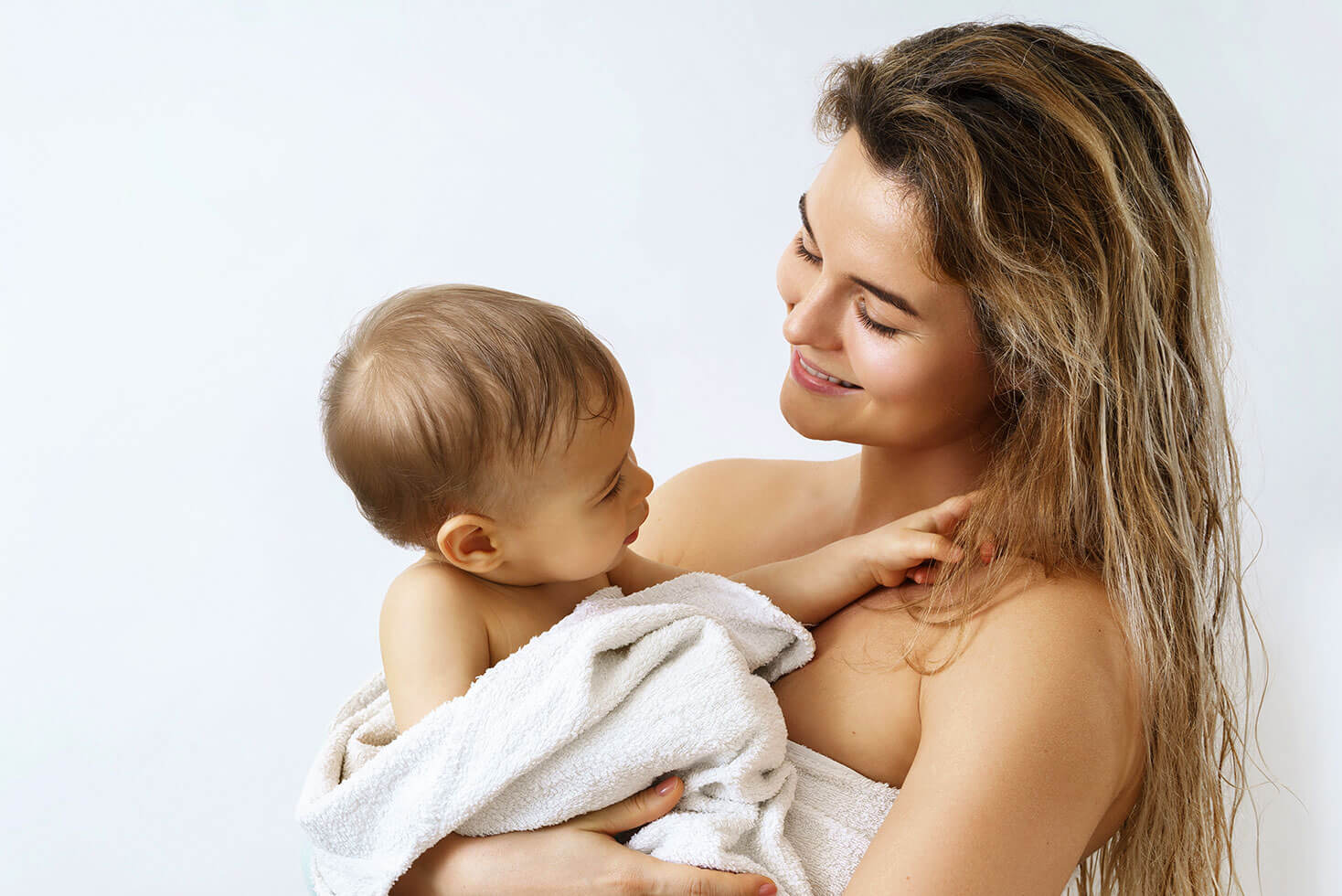
Looking back, I should have seen it coming.
My thick, lustrous hair was a stark contrast to the thin, lifeless locks of my friends who just had kids. But I was so caught up in my pregnancy glow that I just didn’t care.
I would often catch myself admiring my reflection in the mirror, running my fingers through my silky mane.
I felt like a goddess!
But then, suddenly, it was all gone.
Within weeks of giving birth, my hair started to fall out in clumps. It was dry like straw, frizzy, and a nightmare to style. I felt like a different person – not the confident woman I used to be.
It’s been 6 months, and my hair is finally starting to look like it did pre-pregnancy. After consulting a hairstylist and a friend, a London-based Trichologist, I had to make a change to my haircare routine and supplements intake.
The regret I have, though… I wish I’d done it much earlier and used this supplement 👇
Nutrafol Postpartum Hair Growth Kit
But never mind. Better late than never.
Here’s what I’ve learned about my frizzy hair after pregnancy and what corrective steps I took to regain fuller, thicker, and frizz-free hair.
If you’re going through the same post-pregnancy shitty hair phase, take notes.
Table of Contents
- How My Hair Changed After Pregnancy
- What Happens to Your Hair After Pregnancy
- Why Does Hair Get Dry and Frizzy After Pregnancy?
- How to Fix Frizzy Hair After Pregnancy
- Speak to a Doctor First
- Take Hair Supplements and Postnatal Vitamins
- Stimulate Your Scalp
- Change Your Shampoo and Stretch Out Your Wash Days
- Use a Conditioner That is Formulated for Fine Hair
- Reduce Heat Styling
- Use Lightweight Hair Products
- Use a Hair Cream to Slick Down Baby Hairs
- Change Your Hairstyles to Adapt
- Get a Mom Haircut
- Do Hot Oil Treatments
- Improve Your Diet
- Taking Care of Your Hair as a New Mom
- Frequently Asked Questions
- Postpartum Frizz Can Be Managed
How My Hair Changed After Pregnancy
I wish I could credit my thick, shiny, long, and lustrous to my amazing hair products, but it was all thanks to those wonderful hormones that were in full swing. All the extra estrogen and progesterone overflowing inside me left my hair feeling soft and glowing.
It’s true; elevated hormones during pregnancy give you the best hair you can imagine.
Unfortunately, it didn’t last long after giving birth.
I was so excited to be a mom finally. But as luck would have it, my post-pregnancy hair hit me like a ton of bricks.
Literally, my thick head of hair was reduced to a thinning mess of frizz all over the place!
My locks started going haywire. My normally sleek, shiny, strong hair became dry, brittle, and too frizzy to style and manage.
Worst of all, I noticed my hair was thinning from the top.
At first, I thought it might be just a phase, but it continued for months. I barely recognized myself with this new mess on my head.
I was frustrated but at the same time curious to figure out what was actually happening.
And I did get all the answers eventually. So here are my findings below …
What Happens to Your Hair After Pregnancy
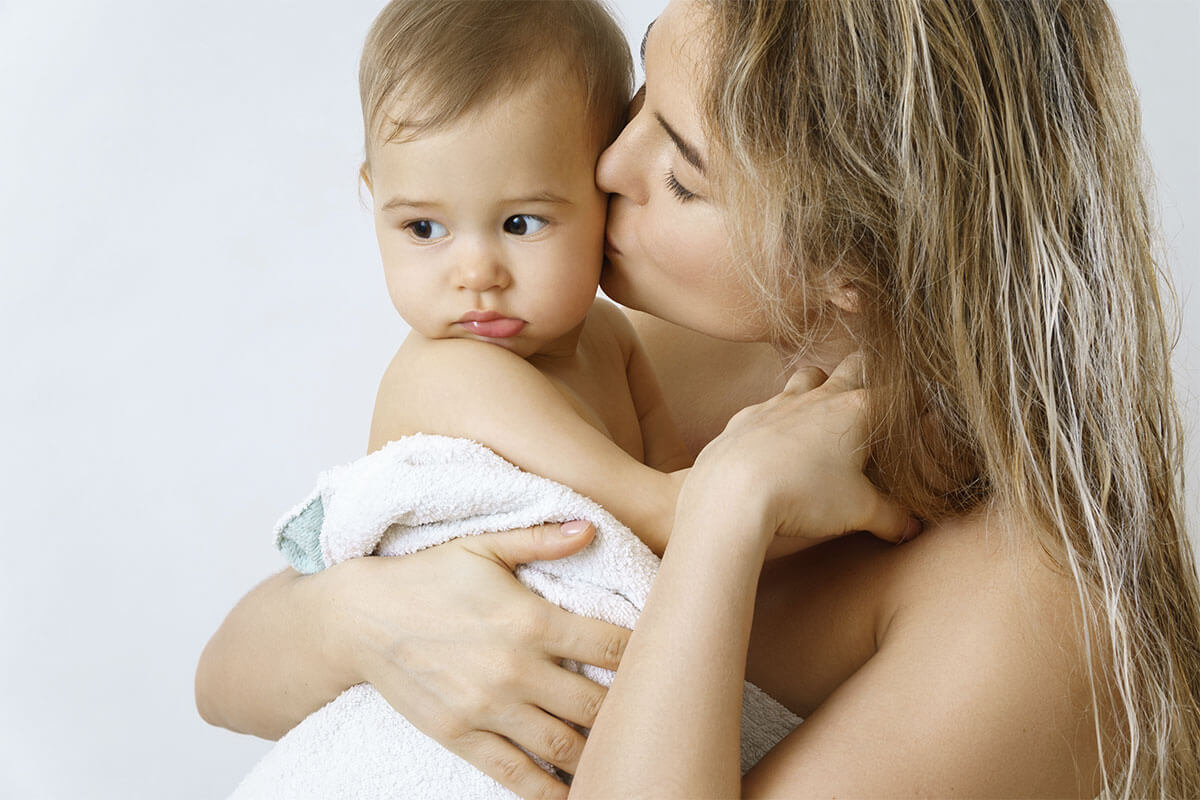
As any expectant mother will tell you, pregnancy can be a time of physical and emotional upheaval. The hormones that surge through your body during this phase can have all sorts of effects – some welcome and some less so.
Once you’ve made it through, it can feel like the hard part is over, but that’s when other challenges begin…
- Postpartum hair loss (shedding)
- Changes in hair texture
- Fine and thinning hair
- Dry and frizzy hair
- Skin issues (dry, itchy, or sometimes too greasy)
are some of the common problems reported by women after childbirth.
Did You Know?:
According to the American Pregnancy Association, hair loss affects 40 – 50% of women during and after pregnancy. [1]Postpartum Hair
Postpartum is when a woman’s body returns to its non-pregnant state after childbirth, which usually involves a sharp decline in hormone levels and uterus size.
For some women, postpartum hair changes are immediate and dramatic. For others, it can happen gradually over time. But regardless of when and how it kicks in, you must accept this reality as your body adjusts.
Here’s how your hair changes after pregnancy…
Your Elevated Hormones Take a Deep Dive
Now, I am not an expert in hair or hormone science. But if there is someone who can nail this down perfectly, it’s Anabel Kingsley, word-famous Consultant Trichologist at Philip Kingsley.
Here’s what she says …
During Pregnancy:
“Oestrogen levels rise, which keeps hairs in the anagen (growth) phase of the hair growth cycle for longer than usual. Fewer hairs are shed, and by the end of pregnancy, hair often feels thicker and more voluminous.”
After Giving Birth:
However, once you’ve given birth, the hormonal rush ends abruptly, slamming the brakes on your highly productive hair growth cycle.
In Anabel Kingsley’s words …
“Hairs that were kept in the growth phase move all at once into the telogen (shedding) phase of the growth cycle, creating substantial hair fall.”
Pregnancy Fact:
New hair volume gained during pregnancy typically begins to fall out after three months postpartum. [2]You Go Through Postpartum Hair Loss
Here’s the science bit that explains why your hair starts to shed dramatically after childbirth:
During pregnancy, when your estrogen and progesterone levels are at full throttle, your hair goes into the anagen phase, also known as the active phase. The accelerated and longer growth cycle rate, supported by the soaring levels of estrogen, makes the hair sprout out of your scalp with a thicker diameter and density, thus looking fuller and stronger. [3]
There is also an increase in the number of follicles retained in the anagen phase during the 3rd semester.
But estrogen levels decline sharply once the pregnancy is over [4]. The steep decline shocks the system, forcing the hair growth cycle into the telogen phase [5], also known as the follicle resting phase.
Hence, the compensatory shedding of hair postpartum and a sudden decline in hair quality.
According to the American Academy of Dermatology Association, postpartum hair loss is not true hair loss since it’s “excessive shedding” due to declining estrogen levels. [6]
It’s worth noting that some women may barely notice a change in their hair fall, while others may notice thinning and even bald patches.
Postpartum hair loss can also be exacerbated by lifestyle factors like poor diet, stress, and more responsibility for looking after your new baby.
What happens next after shedding is the new growth phase. Although it sounds promising, it gets even more frustrating …
Then the Slow Postpartum Hair Regrowth Begins
Postpartum hair regrowth will feel a bit like a mystery. No one really talks about it, so you don’t know what to expect.
But let me tell you how mine was …
Wispy, frizzy, short baby hairs sprouting in patches that seem to defy gravity and stick up all the time were all over the place! Along my hairline, in front, and along the nape of my neck, these baby frizzy hairs were annoying as fuck to tone down.
Your Scalp Gets Dry and Itchy
As if losing your hair wasn’t enough, you also have to deal with dry, itchy, and flaky scalp as the pregnancy hormones drain from your body.
According to Joshua Zeichner, MD, a board-certified dermatologist in New York City: “The postpartum period is particularly traumatic for the skin. It is a time of hormonal fluctuations, weight loss, and wound healing. This takes a toll on the skin, resulting in dryness, flaking, and itching.”
Read: Here’s how your hair and scalp can change post-baby
Your Hair Texture Changes
Naturally, as the follicular activities slow down and the scalp dries out, the side effects are reduced growth, thinner hair, and an overall change in texture that feels dry and brittle.
The dryness and changes in hair texture causes hair to become frizzy.
“It’s normal for your hair to be drier and more brittle after pregnancy. The good news is that you can restore moisture and shine.” Jessica Wu, M.D.
Dermatologist - Author of Feed Your Face
Hair that once used to be straight can appear curly due to lack of weight, and curly hair can look frazzled due to lack of sebum and brittleness. In addition, many women experience a general lack of hair volume as hair grows slower and thinner.
Why Does Hair Get Dry and Frizzy After Pregnancy?
Slower growth cycles leading to poorer hair quality, lack of sebum on the scalp, and a sharp decline in estrogen are the direct causes of frizzy hair after pregnancy.
Unruly Hair Regrowth
After pregnancy, the hair lost during the postpartum stage starts to subtly grow back, often in the form of tufty, spiky, inch-long wisps of hair strands that can put a serious damper on your hairstyle and physical appearance.
These short hairs springing up around the temples, hairline, and crown – forming a halo of frizz, can be extremely frustrating.
The Scalp Produces Less Sebum
According to research published in the British Medical Journal [7], sebum excretion measured on a sample of 10 women after pregnancy showed a sharp decrease during the postpartum period. The study also showed only minor fluctuations during pregnancy’s middle and last trimesters.
Sebum is a natural lubricant that provides natural moisture to the hair. It is nature’s ultimate conditioner that keeps the hair soft, pliable, and healthy. It also helps to protect the scalp from bacterial infection.
Without optimal sebum production from the scalp, your hair withers and becomes brittle, ultimately leading to frizziness.
Stress and Anxiety
When juggling a new baby and all motherhood’s demands, it’s easy to let your hair care routine fall by the wayside. Breastfeeding, lack of sleep, anxiety, and everything in between can lead to poor hair health.
According to Philip Kingsley, stress releases a hormone called cortisol (the stress hormone), which in turn raises testosterone levels. If you are already predisposed to follicle sensitivity, high cortisol will cause hair thinning. Stress also triggers your scalp to produce more oil, which can cause buildup, breakouts, and dandruff. [8]
To Summarize:
Stress causes an imbalance in hormones that negatively affects the hair and the scalp. The result? Dry, frizzy, and unmanageable hair.How to Fix Frizzy Hair After Pregnancy
Speak to a Doctor First
If you’re struggling with frizzy hair after pregnancy, you should first speak to a doctor or trichologist to rule out any underlying medical conditions. Your hair may be experiencing a temporary, fixable issue, such as a nutritional deficiency or thyroid imbalance. Once your doctor has ruled out any medical causes, they can help you determine the best treatment for your hair problems.
This may involve changing your diet, using different hair products, or getting regular trims to help keep your hair healthy.
Take Hair Supplements and Postnatal Vitamins

After my little one was born, I was determined to return my hair to its pre-pregnancy state.
After talking to my doctor, I started taking supplements tailored for postpartum hair. I could see a major difference in the texture of my hair within the first month! My frizz was gone, and my locks were looking shiny and healthy. Thank goodness for those postnatal vitamins!
Fiona Toomey, the founder of skincare, haircare, and wellness brand, Nessa, and mother of three, is also a strong advocate for taking hair supplements after pregnancy.
Here’s what she says …
“As it can be very difficult to eat well when you are looking after a newborn – plus your body may well be depleted and have extra requirements due to breastfeeding – supplements can be very handy here.”
Source: Elle Magazine
So what supplements are good for fixing frizzy hair after pregnancy?
Here are the ones recommended by the hair experts (with cited references):
Biotin
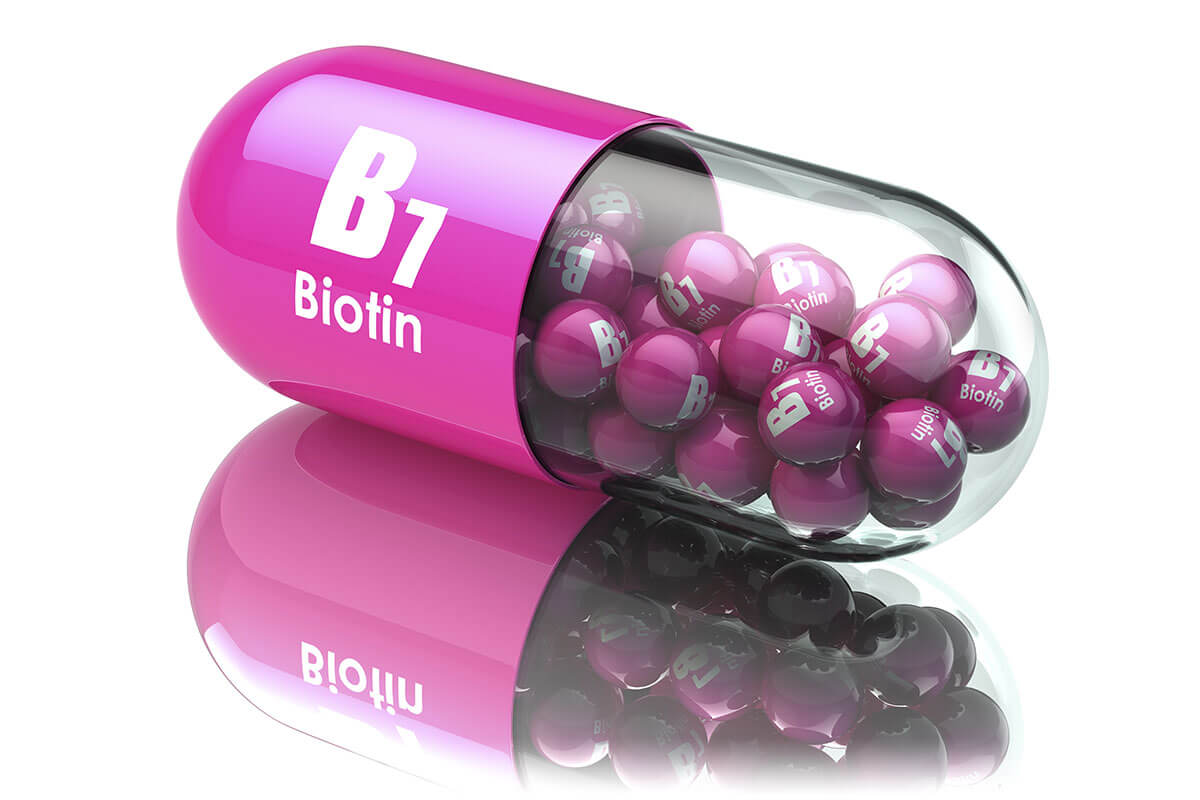
One nutrient often overlooked when it comes to hair after pregnancy is biotin. Biotin is one of the only natural supplements backed by science that improves hair growth for those having deficiencies.
Also known as vitamin B7, biotin is a water-soluble vitamin that your body needs to convert certain nutrients into energy. Furthermore, biotin plays a significant role in your hair, skin, and nail health.
For hair specifically, biotin elongates the hair follicle, leading to stronger hair strands. In addition, biotin helps the hair absorb more vital nutrients, resulting in shinier and healthier hair. If you’re looking for a natural way to improve the health of your hair after pregnancy, consider taking a biotin supplement.
When Rochelle Humes, British singer, and TV presenter, revealed her postpartum hair recovery in Women’s Health Magazine, the announcement was very welcome news for many new moms struggling with postpartum hair loss.
“You know it’s going to happen, but third baby in, I’m kind of a bit wiser to it and I wanted to start on a course of good supplements.” Rochelle Humes
Speaking to - Women's Health Magazine
Gretchen Friese, a certified trichologist at BosleyMD, also recommends consuming foods rich in biotin and omegas.
Can Breastfeeding Moms Take Biotin?
Absolutely. Taking biotin is safe during breastfeeding because it has a wide safety margin in humans. According to the Institute for the Advancement of Breastfeeding and Lactation Education, biotin is unlikely to be harmful during lactation. [9]
Collagen
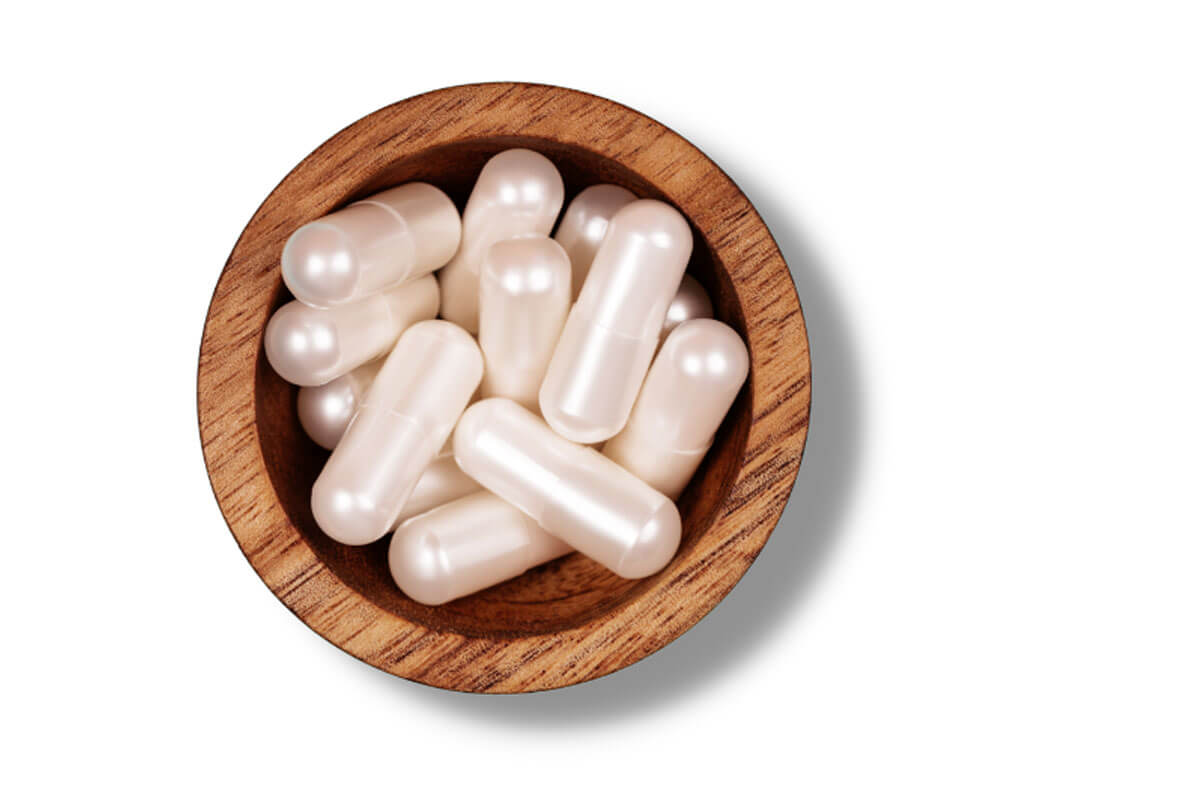
Collagen supplements, according to dermatologists, can also assist with postpartum hair loss.[10]
Collagen is a protein made up of amino acids, which your body uses to build keratin in the hair. By reinforcing the hair’s inner structure, collagen effectively improves the hair’s elasticity and stretch factor, making it less brittle and less likely to break and shed.
Related:
Folic Acid
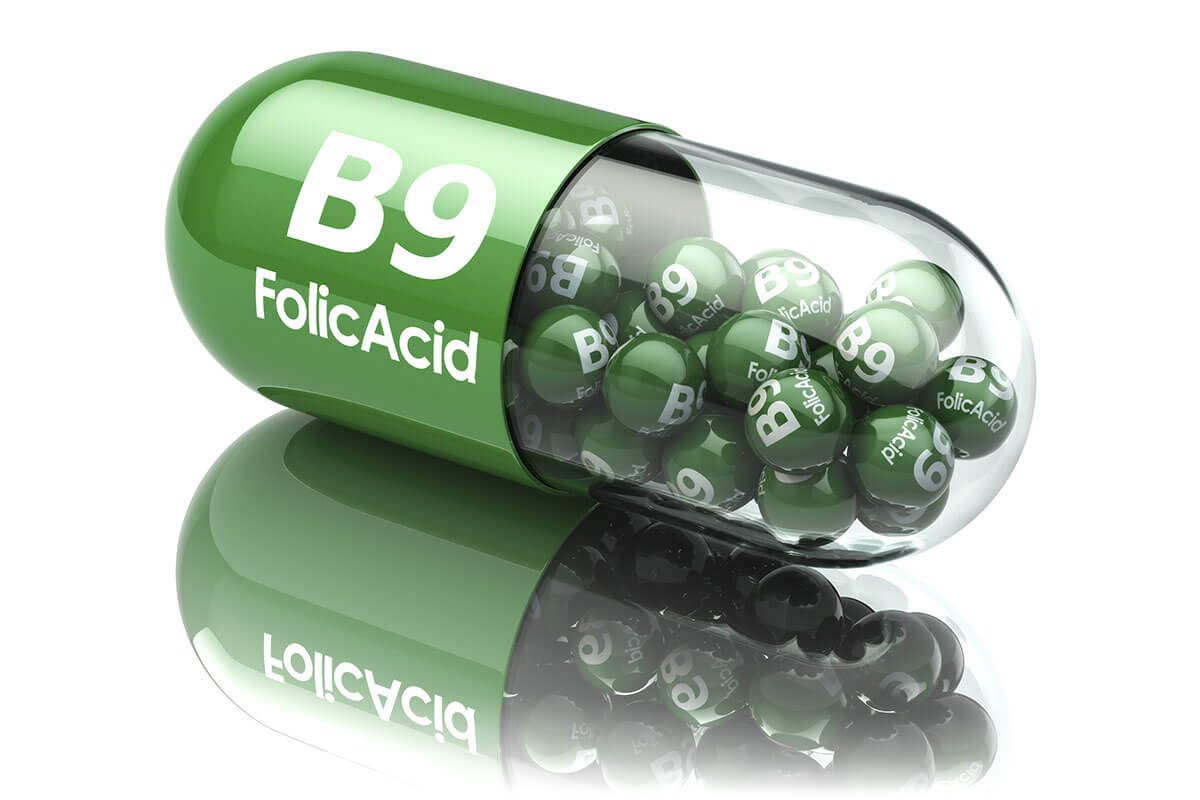
During my struggles, I stumbled upon this interesting article on Well+Good:
I am a dermatologist and a mum of 3, and this is exactly what I did to manage my postpartum hair lossThe article resonated with me as Dr. Lily Talakoub, MD, also recalls her experience of just how awful it was to deal with postpartum hair loss.
Her article struck me with the importance of folic acid as a key supplement in helping the hair recover and grow healthier.
“Every woman needs to use prenatal vitamins after delivery for at least six months. These supplements have the essential nutrients that the hair follicle needs to maintain the growth phase, and strengthen the hair shaft. They help promote growth and prevent hair breakage as well.”
Adds Dr. Lily Talakoub, MD.
Folic acid (Vitamin B9) supports hair growth, adds volume, and can reduce the rate of premature graying by boosting the body’s cell production processes.
The primary function of folic acid is to generate new cells and help cellular metabolism, which is key for maintaining healthy hair, skin, and nails.
Iron
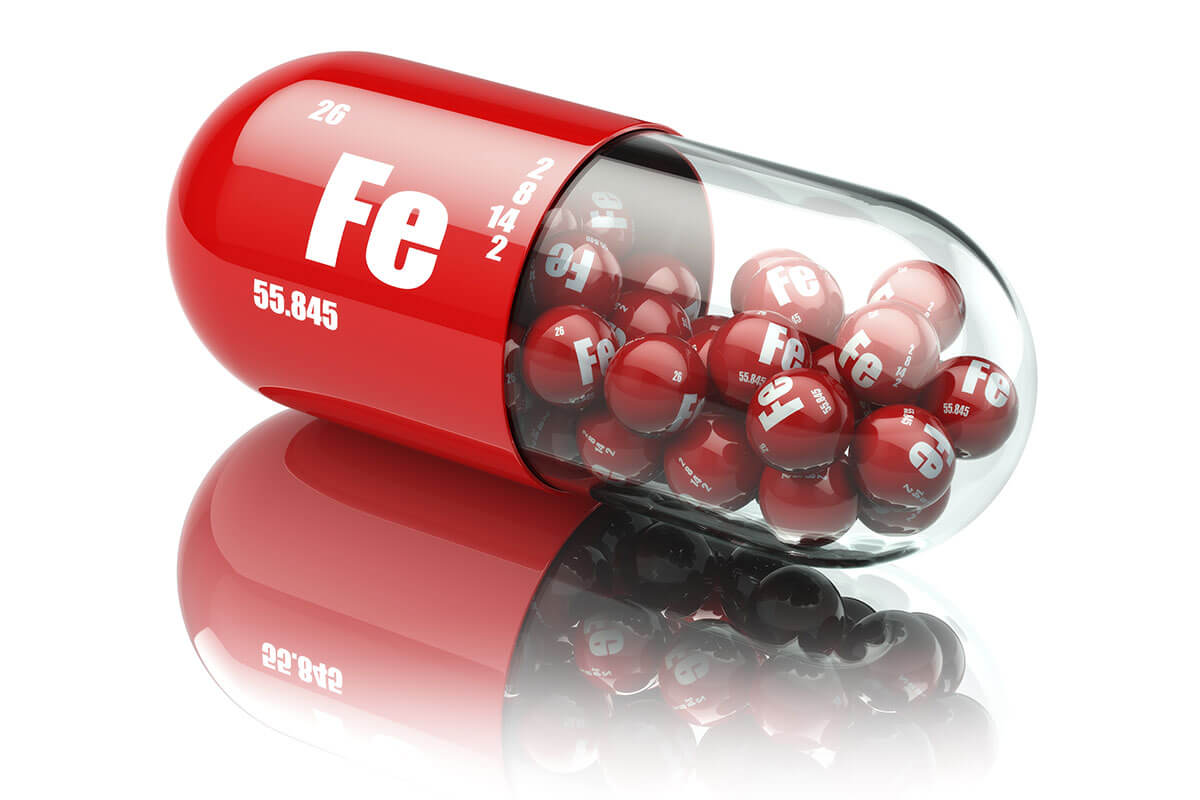
Iron levels usually decline in the first 6 weeks after childbirth, causing anaemia. This is due to blood loss during delivery. [11]
Anaemia is a condition in which the body doesn’t make enough haemoglobin, the molecule that delivers oxygen to cells via red blood cells. The reduced blood oxygen delivery capacity can impact on basic bodily functions. The most typical symptom of anaemia is tiredness. However, it can also lead to shortness of breath, dizziness, and even heart palpitations.
According to a study, nearly 1 in 3 postpartum women has anaemia. [12]
It’s no surprise why most doctors prescribe an iron supplement to women after giving birth to help them recover.
Here’s the best supplement for postpartum hair that brings all these ingredients together in one complete kit:
Nutrafol Postpartum Hair Growth Set
How Long Should You Take Postnatal Vitamins After Giving Birth?
Postnatal vitamins are important for both mother and baby, even after the baby is born. After pregnancy, postnatal vitamins help to replenish the mother’s stores of nutrients like vitamins A, D, and E, which are important for breastmilk production and quality. [13]
They also help to reduce the risk of postpartum depression and improve the mother’s overall health. So keep taking those postnatal vitamins even after your baby arrives, for as long as you’re breastfeeding or at least the first 6 months.
Stimulate Your Scalp
A stimulating scalp brush can offer many benefits for people with dry and itchy scalp problems after pregnancy.
For example, if the scalp is not producing enough sebum, which is common during the postpartum phase, the brush can stimulate sebum production and improve blood circulation to the hair follicles, promoting thicker hair. [14]
In addition, a scalp brush can also exfoliate, removing dead skin cells and encouraging new cell growth.
“Studies have shown that scalp massage can increase hair thickness by stretching the living hair follicle cells and stimulating them to produce thicker, individual hairs, so I’d suggest them for anyone who wants to have thicker hair.” Jessica Wu
Los Angeles–based Dermatologist - Allure
Scalp Stimulating Massage Brush
Change Your Shampoo and Stretch Out Your Wash Days
Shampoos are designed to remove excess sebum but can also strip away the natural oils [15] that protect the scalp and hair. This can leave hair feeling dry and brittle. To avoid this problem, it’s best to stretch your washdays for a bit longer.
Avoid Conditioning Shampoos
Focus on scalp care and use a mild, sulfate-free shampoo. Conditioning shampoos can also be helpful, but avoid ones that contain heavy ingredients that could pull your hair down.
Use Volumizing Shampoos
The American Academy of Dermatology recommends using a volumizing shampoo for new mothers as they contain ingredients like protein that coats the hair for a fuller and thicker appearance.
ThickTails Hair Growth Shampoo and Conditioner
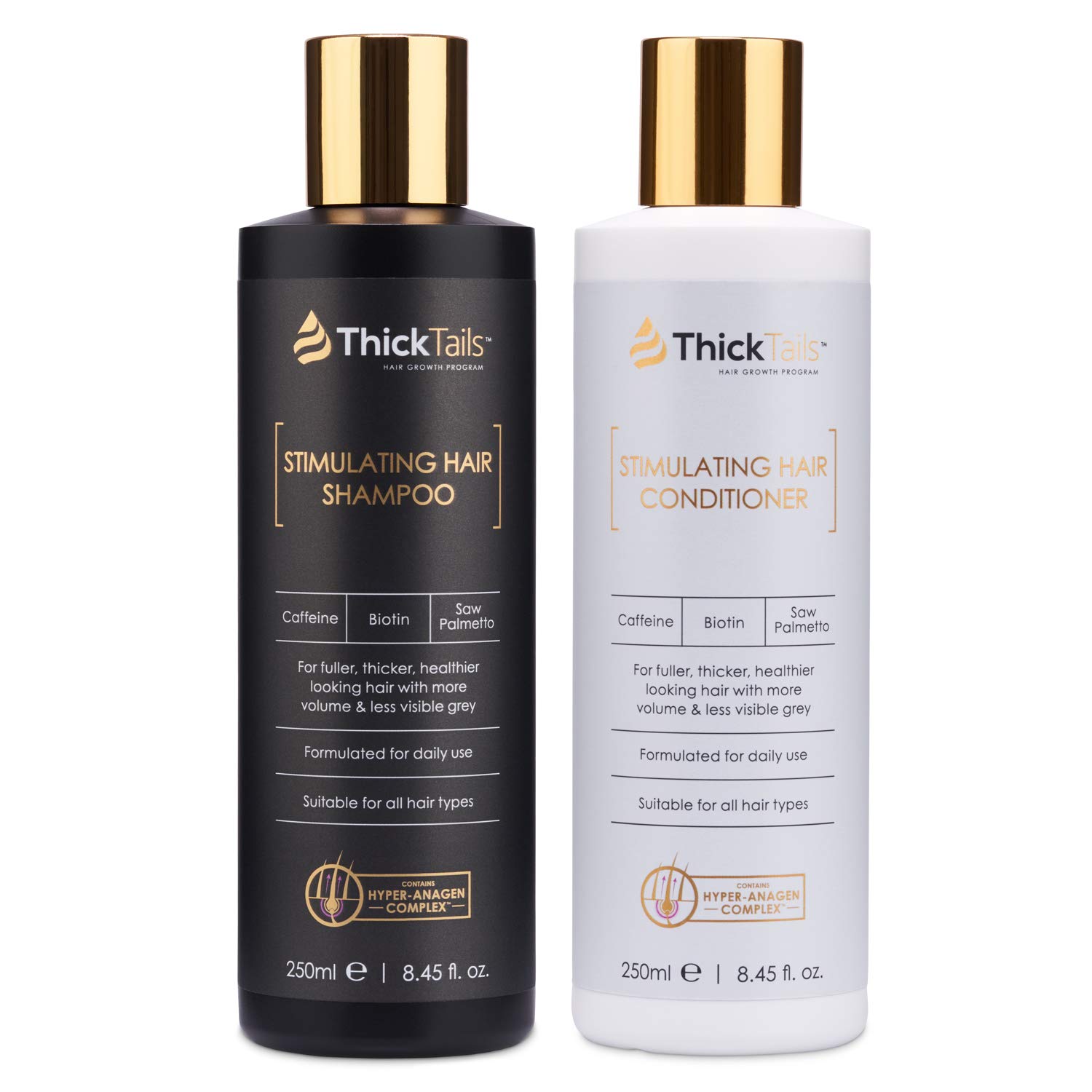
Use a Conditioner That is Formulated for Fine Hair
Many people think that heavy conditioners provide more moisture to make the hair feel softer. However, this can have the opposite effect if your hair is fine and limp. Heavy conditioners can pull the hair down, making it look flat and lifeless. In contrast, conditioners formulated for fine hair can help to give the hair body and volume.
The ThickTails conditioner is formulated for postpartum hair conditions. ☝️
Reduce Heat Styling
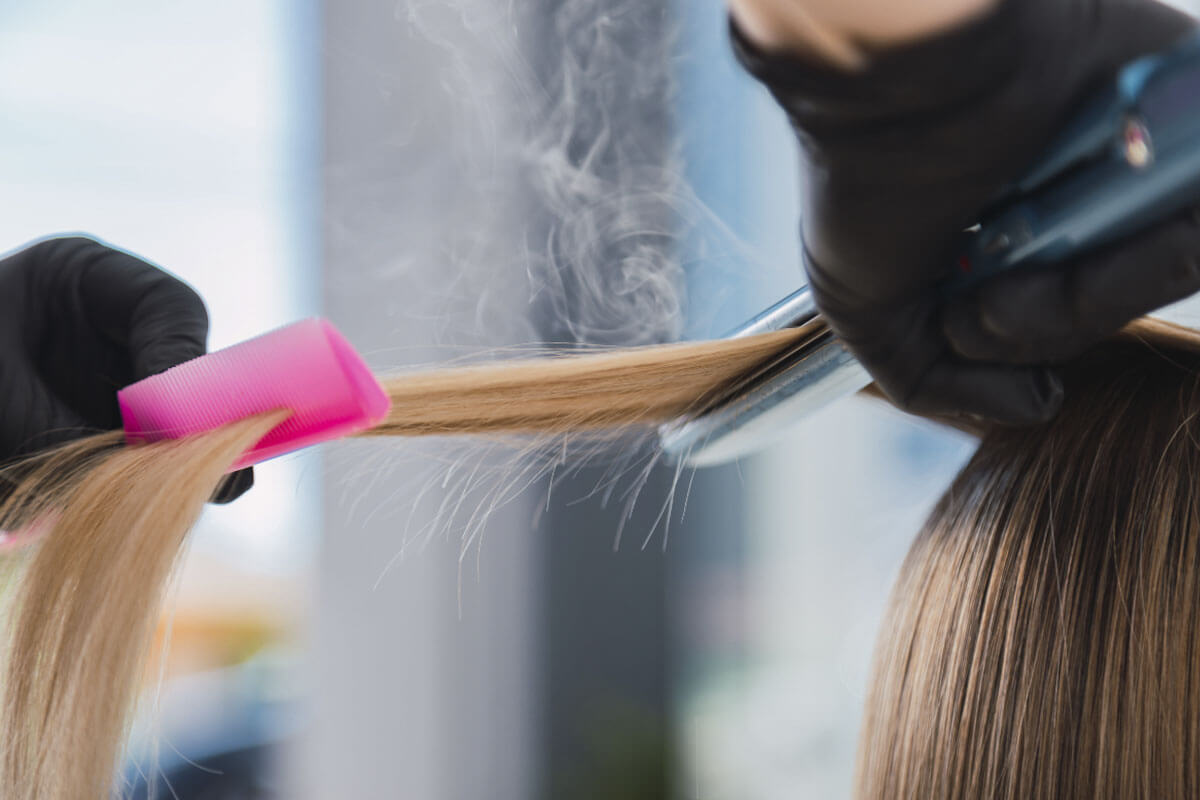
Heat styling makes the hair weaker.
When your hair is already dry, brittle, and in desperate need of help, the last thing you want to do is sandwich them in between 400° F hot plates or blow intense hot air at it.
To help your hair recover, I suggest you lay off the hot tools and figure out alternative methods to style frizzy hair without any heat.
For example, air drying instead of the regular blow dry or using a straightening cream or hair spray instead of flat ironing.
“Opt for air-drying your hair instead. If you do need to blowdry your hair, try using a lower heat setting or letting your hair air-dry about 60-75% before hitting it with the blowdryer.” Sunnie Brook
Celebrity Hairstylist - Rose Inc
Related:
Use Lightweight Hair Products
As a new mom, I don’t have much time to spend on my hair, and I bet you don’t have that time either. Lightweight hair products work well because they don’t weigh my fine hair down. Plus, they are easy to apply and don’t create any residues or buildup that demand frequent washing.
I use a lightly misted leave-in conditioner on my wet hair from roots to ends. This helps to disperse the frizz with minimal effort.
Go ahead and grab this one:
It's a 10 Leave-In Conditioner (Lite)
Use a Hair Cream to Slick Down Baby Hairs
Baby hairs along the hairline are very fine and wispy and can be difficult to manage. One way to tame them and keep them from reappearing is to use a cream to slick them down. Gently smooth the cream over the baby hairs, and then use a brush or comb to style as desired. You can help baby frizzy hairs look neat and tidy with little effort.
Check out our best anti-frizz creams for every hair type
Change Your Hairstyles to Adapt
For the first 6 months at least, while your postpartum hair is trying to stabilize, there is no point in fussing around with fancy hairstyles.
You need to adopt low-maintenance hairstyles that keep that hair away from your baby’s grabby hands, are easy to do, and don’t require much time and effort.
A good rule of thumb is to avoid any styles that add tension to the scalp – so tight ponytails are out. Instead, opt for styles like a low bun or chignon at the nape of the neck.
These hairstyles are super forgiving and do an excellent job of masking thinning hair, frizz, stick-out-y patch of regrowths, and baby hairs without using many styling products.
Related: How to style frizzy hair.

Tip:
Wear baby-friendly necklaces. Your baby will be more interested in the necklace than your hair, allowing him/her to grab her grabby grab impulse without further damaging your weak and poor hair.Get a Mom Haircut
A new haircut can help conceal thin areas and make your hair appear thicker and fuller. Speak to your hairstylist for ideas. He/she will definitely know how to work with your hair to create the illusion of fullness and bounce even when your hair is thinning.
George Northwood, a celebrity hairdresser, says that keeping your hair one length and concentrating on adding density to the ends is the best way to style your hair as a new mom.
And this is exactly how I did mine.
Do Hot Oil Treatments
The hot oil treatment is the classic granny-approved remedy for nourishing dry, brittle, and frizzy hair. Do it yourself at home or book an appointment at your local hair salon, whatever works for you. Once a week is enough to start to get your hair back on track.
Moroccanoil Argan Oil
Improve Your Diet
Adopt a healthy diet that includes protein, iron, and plenty of vitamins. They are key ingredients that support healthy hair growth.
Here are a few ideas of what you can incorporate into your diet:
- Eggs: Protein, Biotin. (Strengthens hair structure)
- Prunes: Contains iron. (Improves hair growth)
- Salmon: Protein, Omega 3, vitamin D. (Hair shine and scalp health)
- Carrots: Vitamin A (Helps produce sebum on the scalp)
- Blueberries: Vitamin C and antioxidants (Improves blood circulation on the scalp)
- Avocados: Vitamin E, healthy fats (Improves the condition of skin and scalp)
Taking Care of Your Hair as a New Mom
Avoid Over-Washing Your Hair
One of the old wives’ tales passed down for generations is that new mothers should not wash their hair for 6 weeks after childbirth!
Well, honestly, you don’t need to go that far.
Your hair will feel a little sensitive after giving birth, so you’ll have to adjust your washing routine to give your hair a longer break from shampoos.
How often should you wash your hair after childbirth?
Aim for 2-3 times a week max. This will help to keep your scalp clean and healthy without over-stripping your scalp’s natural oils. Of course, every woman is different, so listen to your hair and wash it whenever it feels necessary.
Get a Wet Brush
My hair was very frizzy, and every time I took a brush to it, I would end up with lots of breakage. Probably the best way to describe my brush: It was like a graveyard for my hair.
But then, after a much-needed haircut, my hairstylist strongly suggested that I switch to a wet brush for the time being. And so I did.
The difference?
It was well worth it. The wet brush would easily remove knots and snarls, detangling my hair with the smoothest of strokes. No more breakage!
I highly recommend switching to a wet brush if you’re struggling with postpartum frizz.
Although it says “wet brush,” you can use it in the shower on wet hair or on dry hair.
You’ll just be surprised by how much of a difference it makes.
Wet Brush with Ultra Soft Bristles
Bonus Tip:
If you want to take it one step further, try using a leave-in conditioner in your hair before brushing.Sleep on Silk
Silk is a gentle fabric that won’t tug or pull at your hair, helping to prevent further breakage. In addition, silk pillowcases are hypoallergenic, breathable, and keep the hair silky smooth by making your locks glide along the surface instead of rubbing.
Yes, you can sleep your way to frizz-free hair as silk reduces static and friction in the hair.
SLIP Silk Pillowcase
Frequently Asked Questions
Why is Hair Curly After Having a Baby?
One of the many changes that can occur after having a baby is a shift in the way your hair grows. While hormonal transitions can cause all sorts of hair changes – from increased shedding to texture changes – one common change is an increase in curl. This is because the higher estrogen levels during pregnancy can cause the hair shaft to swell, resulting in thicker and stronger hair. After childbirth, hormonal levels drop, and the hair shaft begins to shrink, resulting in weaker hair strands that curl up due to lack of weight and density.
Does Breastfeeding Affect Your Hair?
Breastfeeding does not cause hair loss. Hair shedding is typical throughout the breastfeeding and postpartum periods. This is due to the fluctuations in hormone levels during this time. Hair may appear thin or shed excessively because of declining estrogen levels. However, this is only fleeting, and your hair will return to normal thickness once your hormones have returned to normal levels. [16]
How Long Does Postpartum Hair Last?
6 – 12 months.
According to NetDoctor, after 6 to 12 months, postpartum hair generally regains its pre-pregnancy state. [17]
“While we cannot alter the biological changes in hormone levels, know that hair growth and hair loss during this time is not permanent. Your normal growth pattern will return.”
Dr. Kerry-Anne Perkins – Board-certified OB-GYN based in New Jersey
Can Pregnancy Affect Curly Hair?
Pregnancy hormones can have a significant impact on our hair and curl forms. You may notice more dryness, less curl definition, less volume, or even minor hair loss. [18]
Should You Cut My Hair After Pregnancy?
Thinning hair is a blow to any new mother’s self-confidence. However, getting a cut does have its benefits. While trimming your hair and split ends won’t make it stop shedding, it will encourage growth. In addition, a shorter style may be easier to manage during this time. Ultimately, the decision of whether or not to cut your hair after pregnancy is a personal one. If you’re struggling with postpartum hair loss, consult your doctor or a stylist to find the best option.
How to Thicken Hair After Pregnancy?
Use a hair-thickening shampoo like ThickTails and take biotin supplements.
Will Your Hair Ever Be the Same After Pregnancy?
Your hair’s condition will not be permanently altered after pregnancy. It’s just a stage in your body’s attempt to acclimate to a substantial fall in high estrogen levels, which were keeping your hair fuller, lustrous, and healthier.
Hair should recover and return to its pre-pregnancy state after your hormones have calmed down. By the conclusion of your first year following delivery, normal hair development will resume for most individuals. [19]
All you can do is stick to a hair care and styling regimen that does not damage or break your hair and trust the process.
Postpartum Frizz Can Be Managed
Thankfully, postpartum frizzy hair is not a permanent condition.
Unlike menopausal frizz, which can take longer to reverse, your hair will slowly and surely get back to its former self over time. But it’s definitely a challenge to deal with it in the meantime.
It wasn’t until the fourth month that my hormones leveled out, and my hair slowly began to grow back in its original glory. I had to suffer through some really distressing moments with my hair.
If you’re going through the same stage, rest assured that your hair will finally return once your hormones settle down.
To minimize unpredictability, hair shedding, and frizziness, you must adopt a good hair care routine. It will help your hair return to normal faster than I did.
You can speed up the process with a high-quality supplement like Nutrafol.
Nutrafol Postpartum Hair Growth Kit
References & Citations
- American Pregnancy Association
Pregnancy and hair loss
https://americanpregnancy.org/healthy-pregnancy/pregnancy-health-wellness/hair-loss-during-pregnancy/ - What to Expect When You’re Expecting Book
Murkoff, Heidi E., Arlene Eisenberg, & Sandee E. Hathaway. What to Expect When You’re Expecting. New York: Workman Publishing Company, Inc., 2002.
https://www.goodreads.com/book/show/174703.What_to_Expect_When_You_re_Expecting - Endocrinology of Pregnancy
Tal R, Taylor HS. Endocrinology of Pregnancy. [Updated 2021 Mar 18]. In: Feingold KR, Anawalt B, Boyce A, et al., editors. Endotext [Internet]. South Dartmouth (MA): MDText.com, Inc.; 2000-.
https://www.ncbi.nlm.nih.gov/books/NBK278962/ - The Neuroendocrinological Aspects of Pregnancy and Postpartum Depression
Trifu S, Vladuti A, Popescu A. THE NEUROENDOCRINOLOGICAL ASPECTS OF PREGNANCY AND POSTPARTUM DEPRESSION. Acta Endocrinol (Buchar). 2019 Jul-Sep;15(3):410-415. doi: 10.4183/aeb.2019.410. PMID: 32010366; PMCID: PMC6992410.
https://www.ncbi.nlm.nih.gov/pmc/articles/PMC6992410/ - The Postpartum Telogen Effluvium Fallacy
Mirallas O, Grimalt R. The Postpartum Telogen Effluvium Fallacy. Skin Appendage Disord. 2016 May;1(4):198-201. doi: 10.1159/000445385. Epub 2016 Apr 20. PMID: 27386466; PMCID: PMC4908443.
https://www.ncbi.nlm.nih.gov/pmc/articles/PMC4908443/ - Hair Loss in New Moms
https://www.aad.org/public/diseases/hair-loss/insider/new-moms - Effect of Pregnancy on Sebum Excretion
Burton JL, Cunliffe WJ, Millar DG, Shuster S. Effect of pregnancy on sebum excretion. Br Med J. 1970 Jun 27;2(5712):769-71. doi: 10.1136/bmj.2.5712.769. PMID: 5428740; PMCID: PMC1700836.
https://www.ncbi.nlm.nih.gov/pmc/articles/PMC1700836/ - How Does Stress Affect Your Hair
https://www.philipkingsley.co.uk/hair-guide/hair-science/hair-facts/how-does-stress-affect-your-hair.html - Breastfeeding While Taking High Dose Vitamins
High doses of vitamin, biotin and vitamin D are unlikely to be harmful during lactation.
https://lacted.org/questions/0147-high-dose-vitamins-breastfeeding/ - Causes and Treatments for Postpartum Hair Loss
https://www.mdhair.co/article/postpartum-hair-loss-everything-you-need-to-know - Guideline: Iron Supplementation in Postpartum Women
Guideline: Iron Supplementation in Postpartum Women. Geneva: World Health Organization; 2016. BACKGROUND.
Available from: https://www.ncbi.nlm.nih.gov/books/NBK379991/ - Prevalence of Maternal Anaemia and its Predictors: A Multi-centre Study
Barroso F, Allard S, Kahan BC, Connolly C, Smethurst H, Choo L, Khan K, Stanworth S. Prevalence of maternal anaemia and its predictors: a multi-centre study. Eur J Obstet Gynecol Reprod Biol. 2011 Nov;159(1):99-105. doi: 10.1016/j.ejogrb.2011.07.041. Epub 2011 Sep 3. PMID: 21890259.
https://pubmed.ncbi.nlm.nih.gov/21890259/ - Drugs and Lactation Database
Drugs and Lactation Database (LactMed) [Internet]. Bethesda (MD): National Library of Medicine (US); 2006-. Vitamin A. [Updated 2021 Oct 18].
Available from: https://www.ncbi.nlm.nih.gov/books/NBK513060 - Standardized Scalp Massage Results in Increased Hair Thickness by Inducing Stretching Forces to Dermal Papilla Cells in the Subcutaneous Tissue
Koyama T, Kobayashi K, Hama T, Murakami K, Ogawa R. Standardized Scalp Massage Results in Increased Hair Thickness by Inducing Stretching Forces to Dermal Papilla Cells in the Subcutaneous Tissue. Eplasty. 2016 Jan 25;16:e8. PMID: 26904154; PMCID: PMC4740347.
https://www.ncbi.nlm.nih.gov/pmc/articles/PMC4740347/ - Essentials of Hair Care often Neglected: Hair Cleansing
Draelos ZD. Essentials of Hair Care often Neglected: Hair Cleansing. Int J Trichology. 2010 Jan;2(1):24-9. doi: 10.4103/0974-7753.66909. PMID: 21188020; PMCID: PMC3002407.
https://www.ncbi.nlm.nih.gov/pmc/articles/PMC3002407/ - Does Breastfeeding Cause Hair Loss
https://www.medicalnewstoday.com/articles/breastfeeding-hair-loss - NetDoctor – Postpartum Hair Loss Explained
https://www.netdoctor.co.uk/parenting/pregnancy-birth/a36470355/postpartum-hair-loss/ - Pregnancy Hormones and Curls
https://boucleme.us/blogs/news/pregnancy-hormones-curls - Hair Changes in Pregnancy and Postpartum – What’s Going On?
https://www.lamaze.org/Giving-Birth-with-Confidence/GBWC-Post/hair-changes-in-pregnancy-and-postpartum-whats-going-on
About the Author
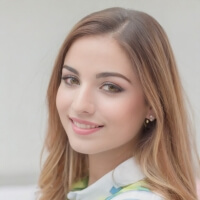 Shehnaz Shirazi
Shehnaz ShiraziShehnaz Shirazi has been writing in the beauty and cosmetics industry for over 8 years, sharing her expansive hair care and beauty knowledge. Shehnaz researches and tests new hair care trends and publishes her insights here.




